Record-breaking kayaker Birgit Fischer unveils secrets to success
Kayaker Birgit Fischer won her first Olympic gold medal aged 18. Twenty-four years later, aged 42, she won her eighth. The German record-setter is undoubtedly one of the greatest athletes of all-time and her story is well worth listening to.
“From the beginning in 1968 (she first got in a kayak at the age of six) until today, I have been having fun moving boats on the water, going fast and sometimes very slow,” Fischer laughed, before conceding that she has rarely gone slowly.
The sheer volume of records the now 57-year-old set during a career spanning six Olympic Games and 12 Olympic medals – four silvers to go with the eight golds – is head-spinning. First, she is the only female Olympic champion ever to have won gold medals 24 years apart. Next up, she stands alone as the most successful German Olympian of all-time (including her wins while representing East Germany), and she sits second to gymnast Larisa Latynina on the list of the most-decorated female summer Olympians in history. Finally, for now, she is both the youngest and oldest paddler to win Olympic gold.
And to think she missed the Olympic Games Los Angeles 1984, as a multiple reigning world champion, due to East Germany’s decision to boycott the event.
“I see my success in competitive sport being down to my good timing and my clever training,” Fischer said. This may come across as particularly modest, but it is the second part of that simple assessment which provides the clue to the German’s unparalleled success and longevity.
“I have looked after myself well and adapted my training again and again to my age, my stage of life and my environment,” Fischer said. “It was crucial that I never practised the sport as a ‘professional’.”
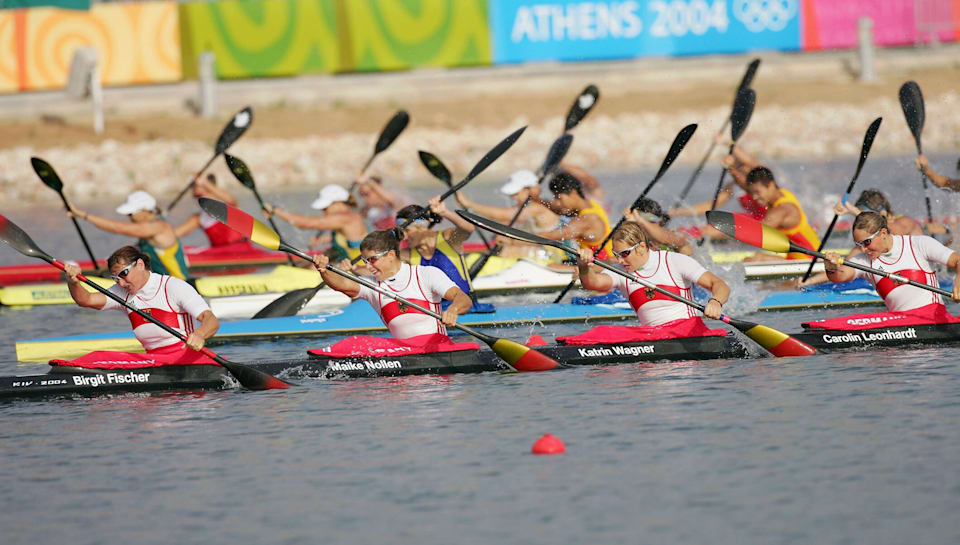
It is at this point that Fischer, who won all her gold medals over 500m in a range of boats from K1-K4, drops her bombshell. From 1992 to her second and final retirement the Potsdam native did not have a coach.
“I trained without a group and I trained without a coach, it was important I was able to divide my time and prioritise my strengths correctly,” she explained.
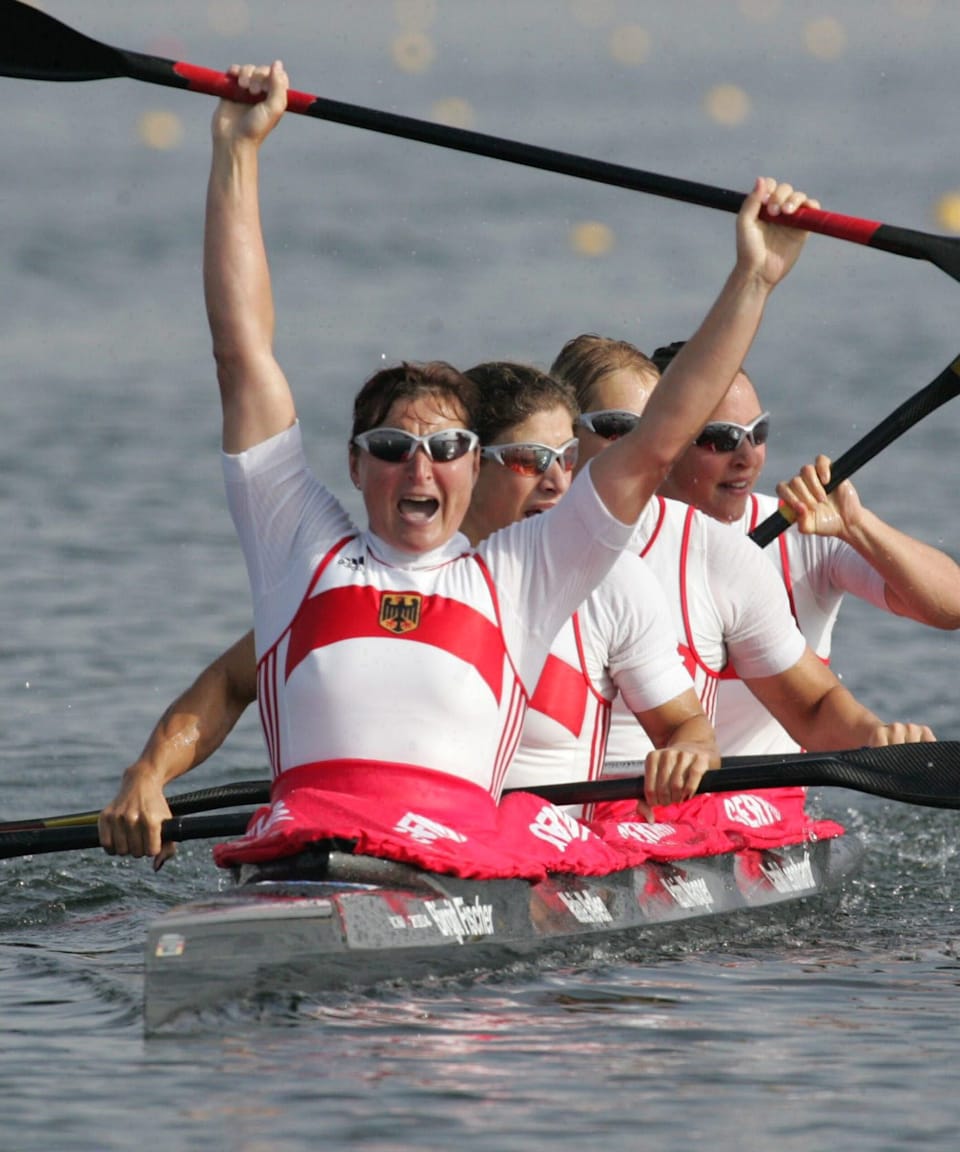
It is perhaps not a surprise to hear a highly successful elite athlete professing single-mindedness, but Fischer’s focus was never narrow during her remarkable career.
“In addition to winning the medals, I also raised two children and completed two degrees,” she said, with a smile.
The birth of her second child formed part of a three-year break Fischer took post-winning K2 and K4 500m gold and K1 500m silver at the Olympic Games Seoul 1988.
But once she got back in a boat in time to prepare for Barcelona 1992, she barely got out again for the next eight years.
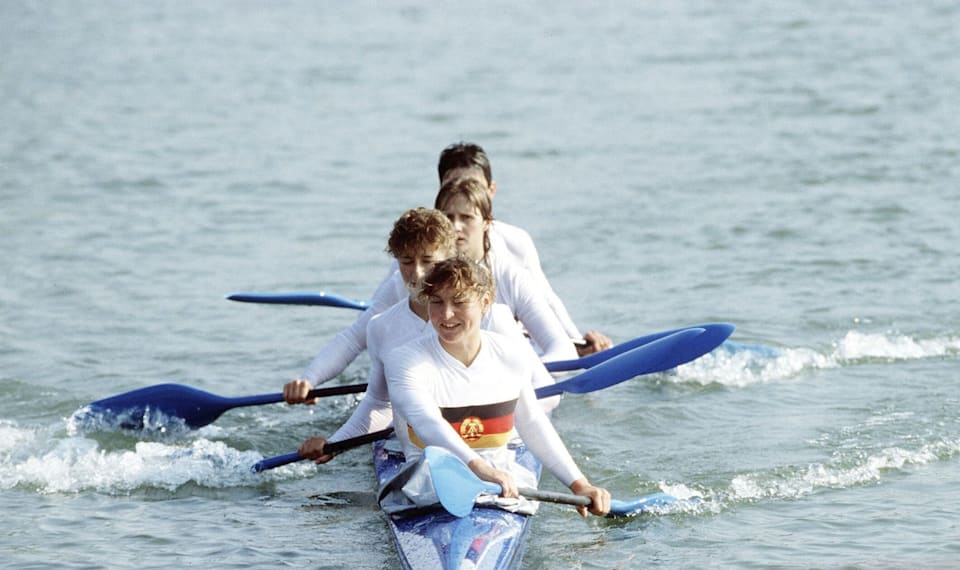
"I wanted to know if I could win again, and I could,” she said. “So, I just continued. I enjoyed winning – in the one (K1) and in the team (K4). So, why should I stop as long as I was winning gold? That made no sense to me. And I had a lot of fun at the competitions.”
Alongside her Olympic success, Fischer was unstoppable on the annual, international stage winning a smile-inducing 27 World Championship titles, including a clean sweep of 500m crowns (K1, K2, K4) five times. But the Olympic Games remained the priority, with the lure of the ultimate competition proving irresistible in 2003.
The then 42-year-old, who had retired after taking double gold in the K2 and K4 500m categories at Sydney 2000, was enjoying life as an ex-paddler when a documentary TV crew turned up on her doorstep. Naturally, they asked what was then one of Germany’s greatest-ever Olympians to get in a kayak for some footage. Fischer obliged. But as soon as she felt the thrill of gliding on the water once more, she was unable to stop her brain whirring.
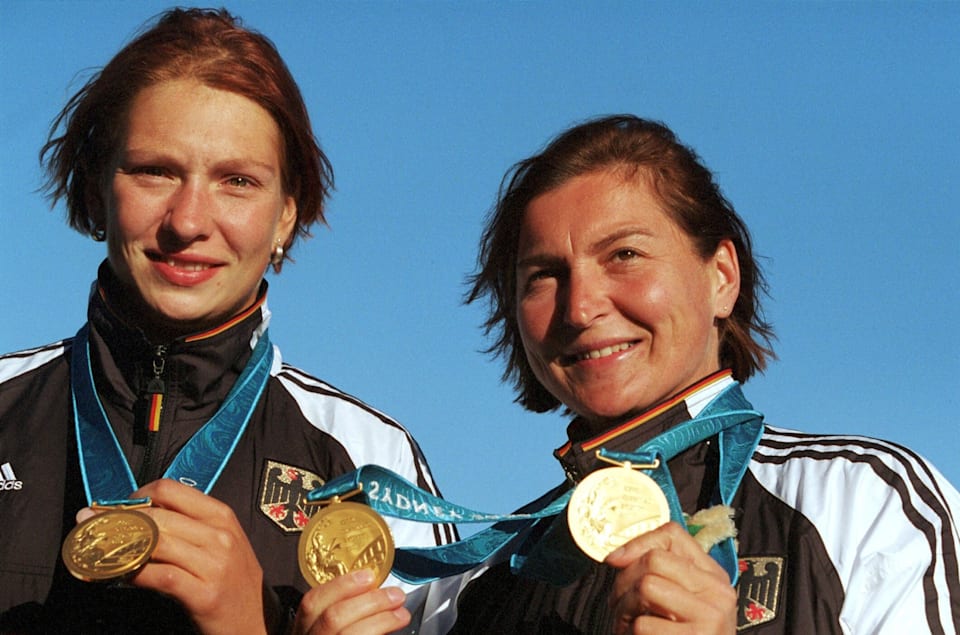
“I wanted to see if I could be really fast at 42,” she said with a laugh. “I wanted to challenge myself again. I wanted to know how and if my training plans could lead to success. I have always loved the great sense of freedom on the water, feeling nature directly below you, the combination of the water, the power, the dynamics and the technology.”
Once she made it known that she was on the hunt for a spot at Athens 2004, the German kayak team management drafted her in to the K4 squad. While she had been away the Hungarians had dominated, claiming four successive World Championship titles. All eyes were on the two crews as the Olympic Games Athens 2004 got underway.
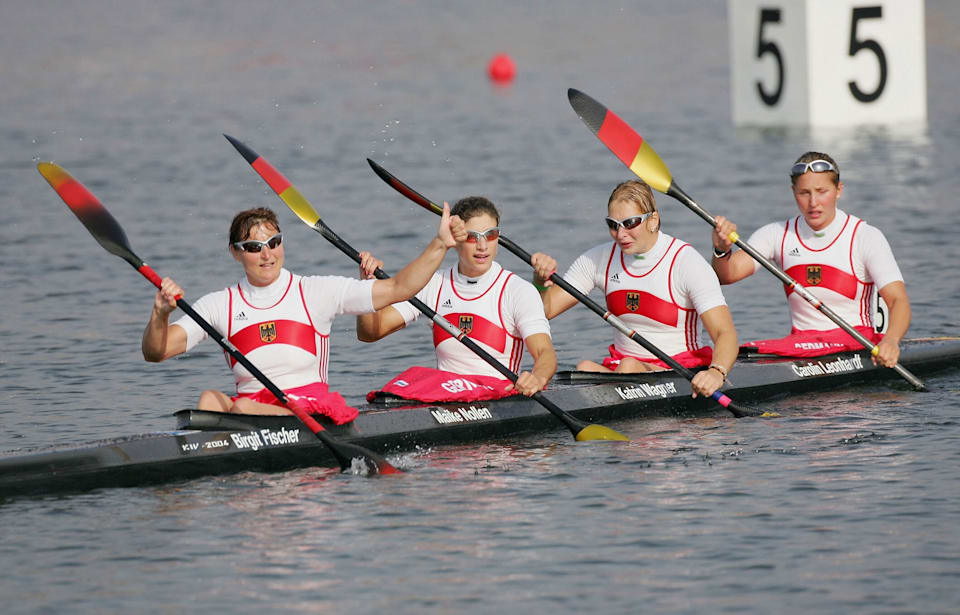
Both Hungary and the Germans flew through the rounds and faced each other in the final, with the watching world well aware what was at stake. The Hungarians led from the gun but with what now seems like a sense of inevitability, the Fischer-led Germans closed the gap, metre by metre, and eventually swiped the gold by a margin of 0.2 seconds.
“The Hungarians were always my strongest rivals as long as I competed. They were great athletes – funny and always in a good mood,” Fischer said. “They were always fair. We had a high regard for each other.”
The eighth gold capped an extraordinary career, one that is never likely to be matched. But for those interested in trying, Fischer does have some advice worth heeding.
“Never forget your life outside of paddling,” Fischer urged wannabe Olympians. “Do whatever you feel like doing. Do not just listen to the coach but always listen to yourself. Think about your training. Love yourself and take good care of yourself. Have great respect for your team, because without a team you cannot win.”